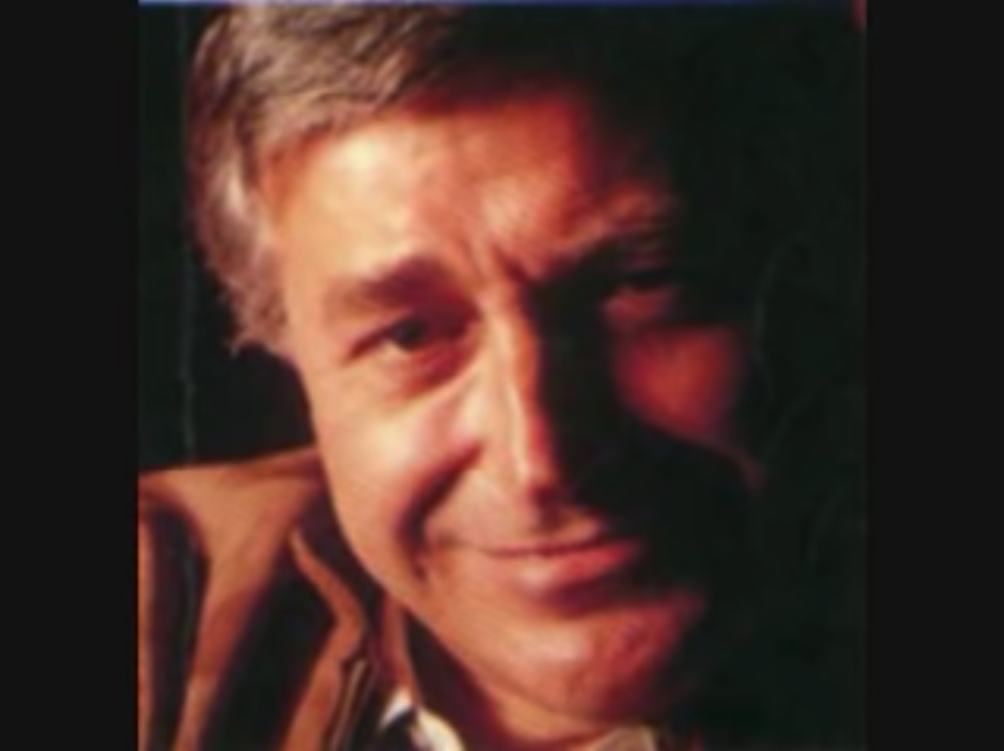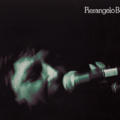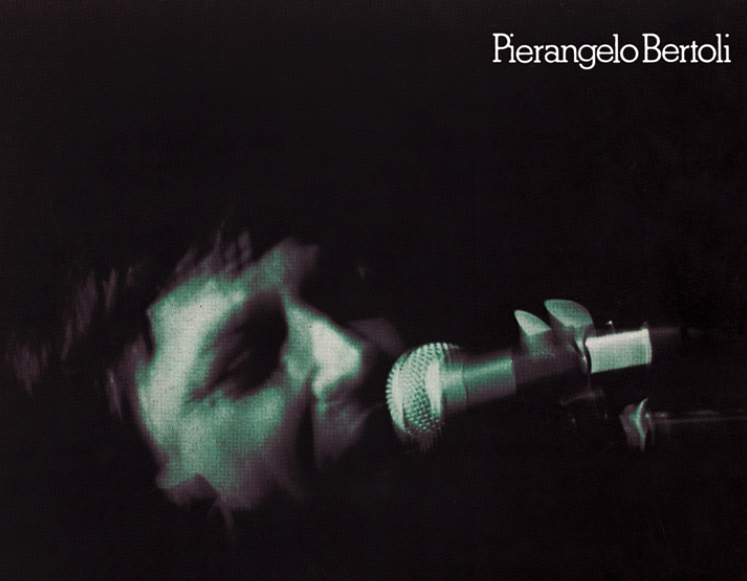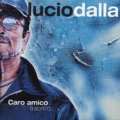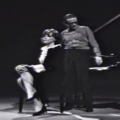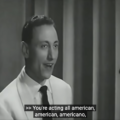Another beautiful song by Pierangelo Bertoli.
Tag Archives: Bertoli
Learn Italian in Song: Il Pescatore
An Italian Song for Valentine’s Day: Per Dirti T’Amo
Pierangelo Bertoli: To Say “I Love You”
Avrei voluto dedicarti una canzone — I would have liked to dedicate a song to you
con le parole della televisione — with the words of the television
tutti quei fiori e quei discorsi complicati — all those flowers and complicated discourses
che al cine fanno nei locali raffinati. — which in films they do in refined places
Ma mi sembra di commettere un reato — But that seems to me to be committing a crime
perché per dirti che sono innamorato — because, to say that I’m in love with you
perché per dirti cosa penso in fondo al cuore — because, to say what I think in the bottom of my heart
non c’é motivo che mi finga un grande attore. — there’s no reason for me to pretend I’m a great actor
ritornello: — refrain:
Per dirti t’amo, amo te, bastava solo che guardassi intorno a me — To say I love you, it’s you I love, it was enough to look around me
per dirti ti vorrei sposare, é giusto dirlo, dirlo in modo naturale. — To say I’d like to marry you, it’s right to say it, say it naturally
Non voglio chiuderti in nessun mondo fatato — I don’t want to close you in any enchanted world
e non ho voglia di tornare nel passato — and I don’t want to return to the past
io so, potremmo avere il mondo nelle mani — I know, we could have the world in our hands
se siamo forti e fiduciosi nel domani. — if we’re strong and have faith in tomorrow.
Avremo un posto dove andare a lavorare — We’ll have a place to go and work
e avremo figli da allevare e da curare — and we’ll have children to raise and take care of
e tanto amore tanta gente come noi — and much love, and many people like us
e avremo un mondo, un mondo nuovo intorno a noi. — and we’ll have a world, a new world around us.
(refrain)
Learn Italian in Song: Cent’Anni di Meno
Pierangelo Bertoli – One Hundred Years Younger
Stesi nell’erba tra i fiori di campo / Stretched out in the grass among the flowers of the field
Persi a narraci future fortune coi sensi colmi di voglia di vita / Lost in narrating [our] future fortunes with our senses filled with the desire for life
In tasca solo speranza infinita / In our pocket only infinite hope
E una fiducia infinita nel seno / and an infinite faith in our breast
Quando avevamo cent’anni di meno / When we were 100 years younger.
Quando una donna era fatta di nebbia e dalle labbra stillava rugiada / When woman was made of fog and her lips dripped dew
Da quella bocca spandeva all’intorno / From that mouth spread all around
Inni alla nascita nuova del giorno / Hymns to the new birth of the day
E i suoi capelli odoravan di fieno / And her hair smelled of hay
Quando avevamo cent’anni di meno / When we were 100 years younger.
Mille cannoni perduti da un bacio / A thousand cannons lost for a kiss
Noi credevamo alla pace nel mondo / We believed in peace in the world
Bastava un dolce sorriso, uno sguardo / A sweet smile, a glance were enough
Tutti abbracciati in un bel girotondo / Everyone embraced in a nice ring-around-the-rosie
Anche al diluvio davamo il suo freno / We even put the brakes on the flood
Quando avevamo cent’anni di meno / When we were 100 years younger.
Oltre i confini di un chiaro orizzonte nascevan solo mattini di pace / Beyond the borders of a clear horizon were born only mornings of peace
La fame, il freddo, la tetra miseria o il malgoverno di qualche incapace / Hunger, cold, dark misery or the bad government of some incapable [idiot]
Tutto sfumava in un cielo sereno / Everything faded away in a serene sky
Quando avevamo cent’anni di meno / When we were 100 years younger.
Luce accecante ci entrava negli occhi e dipingeva di rosa il cammino / Blinding light entered our eyes and painted our path in pink
Gli sfruttatori, gli schiavi del vizio o i giustizieri di un vecchio ronzino / The exploiters, the slaves of vice, or the vigilantes of an old nag
Li lasciavamo fuori dal treno / We left them off the train*
Quando avevamo cent’anni di meno / When we were 100 years younger.
Sopra alle sponde di un lago di pane noi portavamo l’intero creato / Above the banks of a lake of bread we carried all of creation
Poi cantavamo canzoni all’amore / Then we sang songs to love
Nudi tra gli alberi ai bordi di un prato, paghi d’amore col cuore ripieno / Naked among the trees at the edges of a meadow, repaid with love with our hearts full
Quando avevamo cent’anni di meno / When we were 100 years younger.
Sotto alle stelle in un bar dentro casa senza deciderci ad andare a dormire / Beneath the stars in a bar at home, without deciding to go and sleep
Noi volavamo su Marte o la Luna felici solo di starci a sentire / We flew to Mars or the moon, happy just to stay and listen
E credevamo a un domani sereno / and we believed in a serene tomorrow
Quando avevamo cent’anni di meno. / When we were 100 years younger.
- This line may be a reference to This Train is Bound for Glory.
Learn Italian in Song: Certi Momenti
Certain MomentsPierangelo Bertoli, 1980 A song in favor of a woman’s right to choose, from a time when either choice to be made for an unwanted pregnancy resulted in social stigma. Unfortunately, the song is relevant still today. For the moment (2008), abortion is legal in Italy, but the political right wing and the Catholic church are doing what they can to make obtaining an abortion – or even birth control – more difficult. Teenage pregnancy has not been a big phenomenon in Italy to date, but at this rate… A year or two ago we went out to dinner at Taverna ai Poggi, a restaurant near our home in Lecco. The only table left was in the basement, alongside a large (pre-arranged) banquet of some sort. We were a merry little bunch, and the restaurant staff kept apologetically asking us to quiet down so we wouldn’t disturb the other group. Perforce, we listened to them, and were astonished to hear a long recital of vitriolic anti-abortion poetry. Had I had my wits about me, I should have replied with this song. |
|||
| Anna che hai scavalcato le montagnee hai preso a pugni le tue tradizioni lo so che non é facile il tuo giorno ma il tuo pensiero é fatto di ragioni i padri han biasimato la tua azione la chiesa ti ha bollato d’eresia i cambiamento impone la reazione e adesso sei il nemico e cosi’ sia ritornello: Credo che in certi momenti il cervello non sa piu’ pensare e corre in rifugi da pazzi e non vuole tornare poi cado coi piedi per terra e scoppiano folgore e tuono non credo alla vita pacifica non credo al perdono Adesso quando i medici di turno rifiuteranno di esserti d’aiuto perchÉ venne un polacco ad insegnargli che é piu’ cristiano imporsi col rifiuto pretenderanno che tu torni indietro e ti costringeranno a partorire per poi chiamarlo figlio della colpa e tu una Maddalena da pentire. (ritornello) Volevo dedicarti quattro righe, per quanto puo’ valere una canzone credo che tu abbia fatto qualche cosa anche se questa é solo un’opinione che lascerai il tuo segno nella vita e i poveri bigotti reazionari dovranno fare senza peccatrici saranno senza scopi umanitari (ritornello x2) |
Anna, [you] who have climbed the mountainsand have beaten up your traditions
I know your day isn’t easy but your thought is made up of [correct] reasons The fathers have censured your action the church has declared you a heretic change requires reaction and now you’re the enemy, and so be it. refrain: I believe that in certain moments the brain doesn’t know how to think anymore and runs into crazy refuges and doesn’t want to return then I fall with my feet on the ground and lightning and thunder explode I don’t believe in the peaceful life, I don’t believe in pardon. Now that the doctors on duty will refuse to help you because a Polack* came to teach them that it is more Christian to impose oneself by refusal They will expect that you turn back and they will force you to give birth to then call him “child of shame” and you a Magdalene to repent. (refrain) I wanted to dedicate four lines to you, for whatever a song may be worth I believe you have done something, although this is only an opinion, that will leave your sign in life and the poor reactionary bigots will have to do without [female] sinners they will be without humanitarian aims. |
||
| * Polacco in Italian is not a pejorative term. It merely connotes a male citizen of Poland, in this specific case, Karol Wojtyla, aka the late Pope John Paul II. However, I think the context justifies using the pejorative English term rather than the neutral (and potentially confusing, in spite of capitalization) “Pole”. | |||
|
if you find this useful and want more, let me know! |
|||

